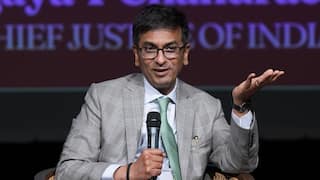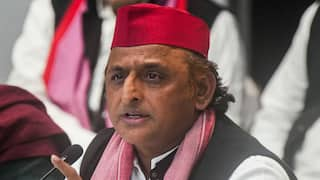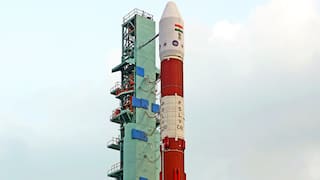Now U.S. to invest in hydrogen, fuel cell energy

Washington, D.C. [United States], June 9 (ANI): Merely a week after President Donald Trump's announcement to withdraw from the Paris Accord, the U.S. Department of Energy (DOE) has announced that approximately USD 15.8 million for 30 new projects aimed at discovery and development of novel, low-cost materials necessary for hydrogen production and storage and for fuel cells onboard light-duty vehicles.
The Trump administration has taken several initiatives to advance the U.S. Energy Department's goals of enabling economic and efficient transportation via fuel cell electric vehicles that use hydrogen fuel produced from diverse domestic resources.
Just three days ago, the United States had announced that up to USD nine million in funding will be made available through the Biomass Research and Development Initiative (BRDI) to increase the nation's energy independence by supporting the development of bioenergy feedstocks, biofuels, and biobased products.
The U.S. Department of Agriculture's (USDA) National Institute of Food and Agriculture (NIFA), in collaboration with the U.S. Department of Energy (DOE) will help develop economically and environmentally sustainable sources of renewable biomass, increase the availability of renewable fuels and biobased products, and diversify our energy portfolio. These projects will be funded through BRDI - a joint NIFA and DOE program. Both DOE and NIFA have been given statutory authorities to support the development of a biomass-based industry in the United States, under the Food, Conservation, and Energy Act of 2008 (FCEA) and the Energy Policy Act of 2005, according to the U.S. Department of Energy.
NIFA and DOE will make up to USD nine million available through BRDI in Fiscal Year (FY) 2017. In support of these goals, NIFA and DOE are soliciting applications from all interested parties, including for-profit entities, universities, nonprofits, and national laboratories. For FY 2017, DOE anticipates funding one to six awards, and NIFA anticipates funding three to 14 awards. Awards are anticipated to range from USD 500,000 to USD two million per award. All DOE funding is subject to the availability of annual congressional appropriations.
Applicants will be permitted to address any or all of the following three legislatively mandated technical areas: (A) feedstocks development, (B) biofuels and biobased products development, and (C) biofuels development analysis.
According to a report of the U.S. Department of Energy, More than 2,000 fuel cell vehicles have been sold or leased in the U.S. since 2015. These consume 95 percent less petroleum per mile than conventional internal combustion engine vehicles, have no tailpipe emissions, and offer quiet operation.
In support of DOE's materials research and advanced manufacturing priorities, the U.S. government has started selecting the projects that will leverage national lab consortia launched under DOE's Energy Materials Network (EMN) this past year. Selections were made under the Office of Energy Efficiency and Renewable Energy's Fuel Cell Technologies Office (FCTO) annual funding opportunity announcement (FOA) in 2017. The selected EMN consortia projects will leverage unique, world-class capabilities at the national laboratories, facilitating collaborations that will expedite the development of advanced materials, the report added.
These developments came after U.S. government's Energy secretary Rick Perry's open support to President Trump's announcement regarding the Paris Accord, in which he said," President Trump's decision will prove to be the right course of action and one I fully support."
Justifying Trump's decision that United States will no longer be party to the Paris Accord, Perry said, "This was neither submitted to nor ratified by the U.S. Senate, and is not in the best long term economic interest of the United States. President Trump's decision will prove to be the right course of action and one I fully support."
"Instead of preaching about clean energy, this Administration will act on it. Our work and deeds are more important than empty words. I know you can drive economic growth and protect the environment at the same time," he added.
He further said, "The United States will continue to be actively engaged in the development of global energy and the world leader in the development of next generation technology".
"That is exactly why I am traveling to Japan and China to discuss the benefits of all forms of energy, including nuclear, fossil, LNG and renewables. I also plan to discuss technological advances such as carbon capture (CCS) that can leverage the abundant resources we have available in an environmentally responsible way," said Perry.
Stressing that "the United States will continue to be a leader in energy technology, development, and delivery", Perry added, "We will serve as an example to the rest of the world on how to achieve economic, energy, and environmental goals simultaneously." (ANI)
Trending News
Top Headlines































